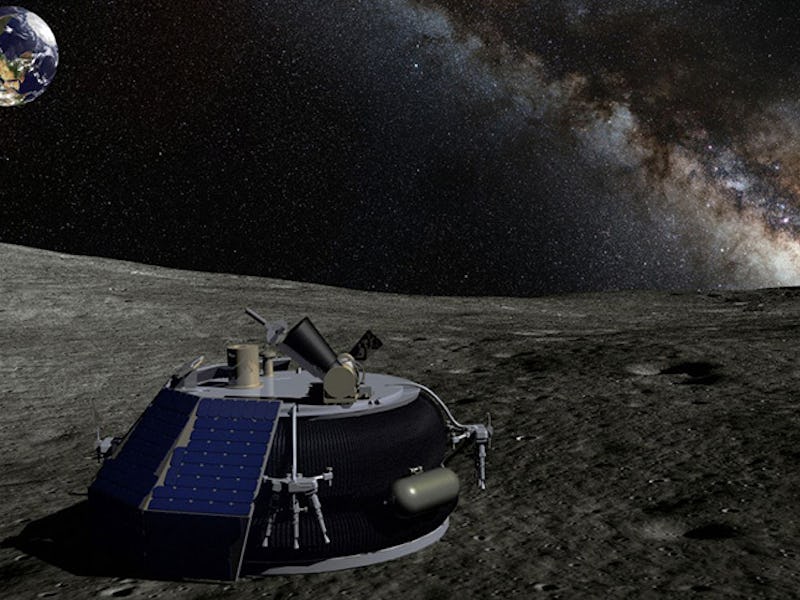Moon Express to Gain 2017 Moon Shot Approval in Race to Win Google Lunar XPRIZE
A new frontier is open.

Just two months ago, Moon Express requested permission from the Federal Aviation Administration to launch a set of scientific instruments to the Moon as part of its quest to win the Google Lunar XPRIZE —and some $20 million — by the end of 2017. Now, sources have told the Wall Street Journal that the FAA will allow the company to become the first non-governmental agency to reach the Moon and travel at least one third of a mile. Moon Express has contracted with Rocket Lab, a U.S.-New Zealand private partnership, to send its rover to the Moon in 2017 aboard an Electron rocket, which makes it the most credible challenger to Israel’s SpaceIL, which became the first company to sign a verified Moon launch agreement in October, 2015.
The FAA’s quick approval of Moon Express’s application establishes an important precedent and potentially opens the door for other private companies. No private company has ever before won governmental approval to travel to the Moon under the terms of Article 6 of the 1967 Outer Space Treaty that requires governments to provide authorization and continuing supervision of visits to other celestial bodies. No individual governmental agency currently has authorization to approve trips to the Moon, requiring Moon Express to straddle both the FAA and the Department of State to receive official signoff.
In order to win the Google Lunar XPRIZE, Moon Express’s rover will have to travel at least a third of a mile and transmit photos and video. (The second prize $5 million reward would help cover the cost of a trip that company officials project to cost about $25 million.) Moon Express has already raised at least $30 million in venture capital and has announced plans to double that amount in the near future.
Moon Express has contracted with Rocket Lab to send at least three missions to the Moon by 2020. By early in the next decade, the company’s leadership is planning to bring the first specimens from the Moon back to Earth since the last Apollo mission departed in 1972. Eyeing research and commercial opportunities, Moon Express has remained relatively obscure in the public eye but has drawn attention in the spaceflight industry by blasting forward against regulatory opposition and obfuscation.
By winning approval to launch to the Moon, Moon Express has forced the U.S. federal government to develop a mechanism for approving flights to other celestial bodies. While the Moon and Mars may seem galaxies apart, any attempt by Elon Musk’s SpaceX to reach the Red Planet, either with a rover in 2018 or humans in 2024, will have to traverse the same approval process, and it’s always easier to go where others have tread before.
The Wall Street Journal reports that deliberations over the approval process reached the White House itself, as top science officials attempted to determine exactly how this new frontier of space travel would proceed. The United States may have less of a vested interest in the success of its private companies than its own space agency, but certainly Americans have taken a unique pride in the success of trailblazers like SpaceX and Moon Express. The approval of the application sends an important message to American spaceflight companies that the government is willing to work with industry to open a new frontier and win the next great space race.